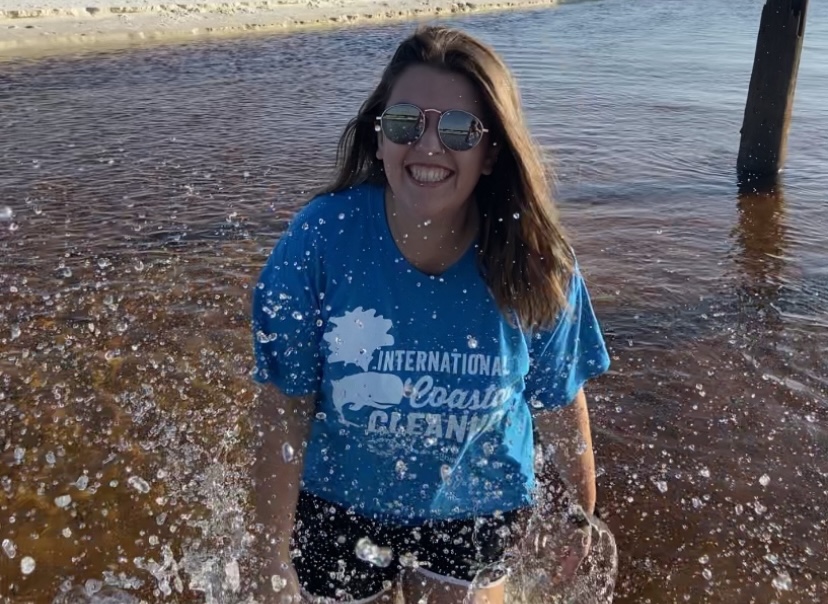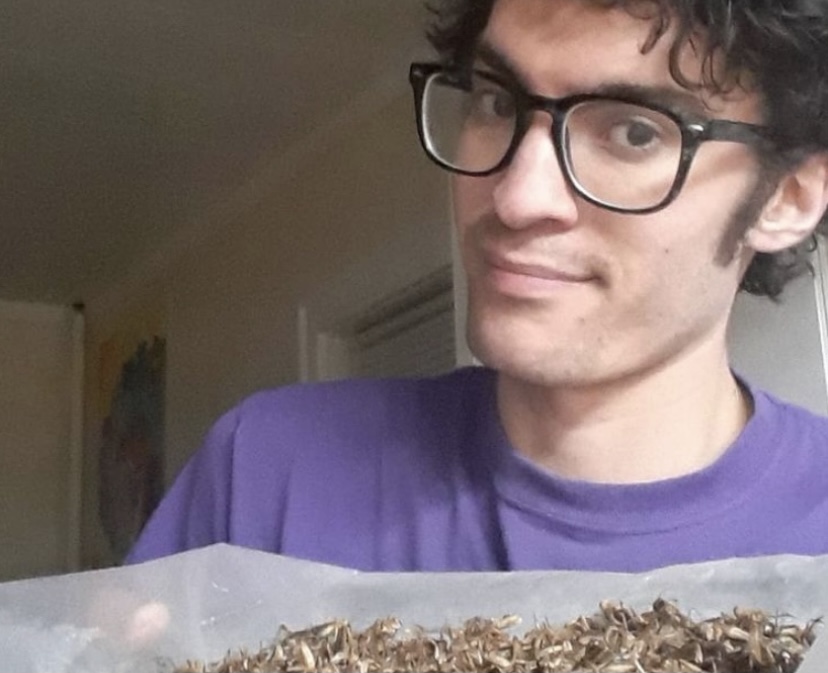During our interview this week, we get to chat with two national service volunteers, who are doing environmental work down in Florida. Among other ideas, they share about how crickets can make your life more sustainable.
What does sustainability mean to you?
H: “Sustainability means, to me, making choices that will be beneficial for the long term.”
M: “I would say sustainability, to me, is devoting more of your energy towards maintenance rather than growth.”
Why is sustainability important?
H: “It is important because, while the world is ever-so-rapidly changing, we need to focus on continuing to make sure that we are changing with the world and that we are making the right choices as our world changes and as our situation changes in order to grow with the world.”
M: “So there’s these really simple organisms that grow with each other, slime molds. They form this weird little amoeba thing when they’re searching for food. If you put them in a Petri dish and throw sugar around, then they’ll find it and save some for later. They’re really good at communicating. I feel like sustainability is really just maintaining your own integrity because when you focus too much on expanding, then you collapse. You can’t be a slime mold that’s like, ‘gotta eat!'”
Does sustainability imply an ethical responsibility?
*simultaneously* H & M: “Yes.”
H: “I think a lot of the time, or at least what it should be, is that while there’s an ethical responsibility, there should also be a moral responsibility.”
M: “It’s definitely going to take a transformation of ethics so people can be sustainable. It’s okay to want more, and most people acknowledge that it’s okay to want more of something, but not a lot of people are able to make this distinction between that and them being able to have everything just because they want it. To be sustainable, it means that you can’t have everything. You have to be satisfied with what you have so that people can have just as much as you, so it can last a significantly long period of time. You know the Land Ethic by Aldo Leopold? Yeah, that stuff.”
Are there any practices that you implement in your everyday life to make it more sustainable?
H: “A lot of the time it tends to be the little changes that we make in our daily life, ones that are attainable and reachable changes. I try to do those things by using shampoo bars and conditioner bars so that I don’t have plastic bottles. They last a heck of a lot longer too. That’s an easy change that I made. It’s economically sustainable because it’s saving me money over time. I’m spending about the same but less frequently. And a reusable water bottle of course. I wrote a blog about the 10 R’s of recycling. Recycling should realistically be your last option, and there’s so many other good options that you should do before that. We also carpool for our job. It saves gas money and gas. I try not to eat beef. Oh, and shopping thrifty. It’s cool when you find cool stuff. Those are my main things, along with so many other things.”
M: “I think my personality traits influence my ability to be sustainable. I’m a pretty frugal person. I also accumulate a lot of objects and use them for certain things. Usually I don’t eat beef a lot. A year and a half ago, I started raising crickets and consuming them. It turns out that crickets have more protein in them per 100 grams than and equivalent sized chicken does. And it has a much lower environmental impact than the beef and pork industry.”
While I had heard that insect protein is much more efficient than animal protein, I had never given it a thought to try. It turns out that there are loads of benefits from cricket protein, as NBS News shares in one of their articles.
Was there a certain time in your life or event that marked when you felt like you needed to/ wanted to make these changes?
H: “For me, I think it was a more over-time switch. When I started college, I was not in Environmental Studies. When I made the switch, I just reflected on my life and what I wanted to do as a kid. What I used to want to be when I grew up all fell within the environmental field, so I thought that would be a good switch to make. I think just with education, things have come along the way.”
M: “Well I’ve always wanted to understand everything around me. When I was 10, I started going to a summer camp. Every new finding I wanted to save, like a rock or a shoe. So from a young age, it was always savoring the little things.”


Leave a Reply